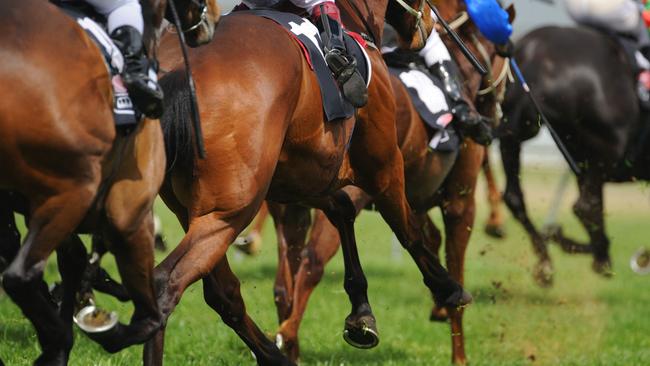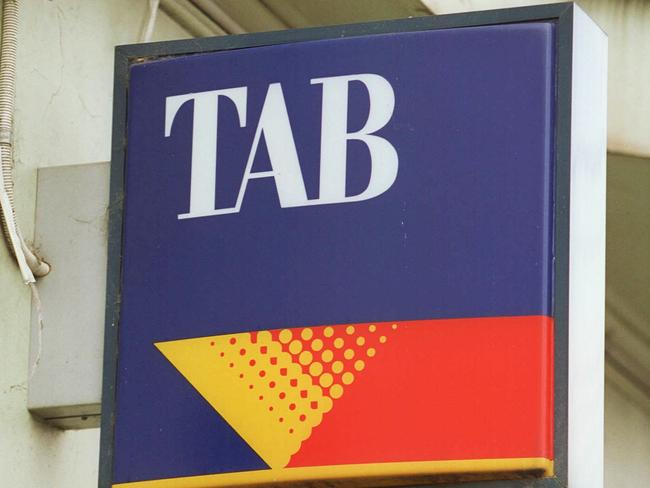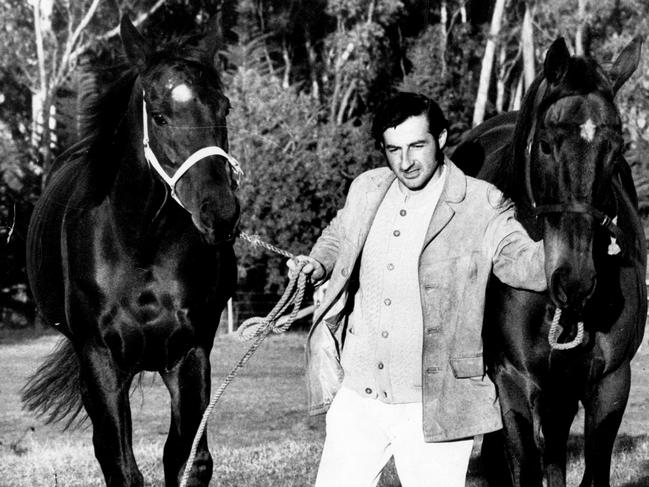Andrew Rule: The racing scouldrels who win big, then lose bigger
Some criminals get away with murder, while others who frequent racetracks get away with money — at least for a while anyway.

Police & Courts
Don't miss out on the headlines from Police & Courts. Followed categories will be added to My News.
Some people get away with murder. Others get away with money, not always at gunpoint.
It’s almost 30 years since a pair of rogues were quietly tip-toed from senior jobs with the TAB. This was after their bosses realised the “odds couple” had been milking on-course deposit accounts for at least six months.
No one has ever admitted exactly how much cash the dodgy pair syphoned into their own pockets before the alarm was tripped by an angry account holder demanding the big bucks he’d deposited months before.
This was the flaw in the rort — it depended on clients leaving their money undrawn for the full year allowed under TAB rules.
Of course, at some point, the rubber band had to break because the account holders would want their money. But our light-fingered pair were punters, so they kept chancing the odds they’d get away with it a bit longer.
All this was to feed their own vices. They weren’t donating to orphanages for Mother Teresa, although they probably kidded themselves they’d pull off a massive score one Saturday and replenish the hacked accounts.
The convenience of TAB betting accounts back then was that bookies and professional punters and other smarties could use them to stash cash or move it around with impunity.
You wanted to pay someone in jail for some reason? Simple, just slip into a TAB, scrawl their PIN number on a slip and drop cash in the account.

Cash lodged anonymously in a TAB could be in some desperado’s hands elsewhere within minutes, faster than anything the banks or Australia Post could do — and far more private.
Until the regulators finally caught up and changed the rules, TAB accounts seemed the perfect way to warehouse money, which was why some bookies and big punters used the on-course service instead of running the risk of carrying cash to and from the track.
Of course, TAB insiders soon worked out who might be putting cash away for the maximum of a year at a time. The dodgy pair could study daily printouts listing on-course accounts, and know which were holding big money but not regularly used.
These dormant accounts had to be cleared each year. The beauty of this for big depositors with embarrassing amounts of cash was that at the end of a year, the TAB would write them a nice, clean cheque.
For the rogues, what probably began as a “rob Peter to pay Paul” emergency swiftly turned into robbing every dormant account they could.
When the balloon went up, the TAB bosses didn’t know if they were shot or poisoned, only that more than $100,000 had evaporated.
The price of bad publicity seemed too high and so the thieves were quietly shown the exit. Like banks, schools and police forces, the TAB wanted dirty laundry kept in house.
A well-informed reporter ferreted out the extent of the loss but never revealed the names of the thieves. He still can’t, although some people with long memories (and photocopies) could testify against the villains if anything went to court.
It’s no coincidence the TAB brought in much tougher rules governing accounts and got a cleanskin executive to delouse the place, which had been run like a family pub since the 1970s.
Speaking of the 1970s, some racing rogues from that era CAN be named. Notably the late Rick Renzella, who was outed for life and did jail time for “ringing in” topline sprinter Regal Vista for the hack Royal School at Casterton in 1972, a notorious fraud that made headlines and a book.

What’s less well-known is that Tricky Ricky pulled a string of successful rorts well before blowing his cover at Casterton when the “ringer” Regal Vista was recognised and shrewd punters started to back the supposed “Royal School” to beat a top country sprinter, which he did with ridiculous ease.
Exactly how many earlier stings Renzella got away with is a secret that was buried with him in 2019. But one unknown story illustrates his crooked genius.
Renzella judged that his one good horse could easily run a place in a certain race at Moonee Valley.
His trick was to have perfectly forged identification papers in false names but with details to match actual brands and markings. This allowed him to set up ring-ins in either of two ways: the “normal” method of substituting a good horse for a slow one under the slow one’s name; or the “reverse ring-in”, running the slow horse in the good horse’s name in a minor event, thus ensuring that the good horse’s recent form is bad enough to blow out its odds when it next legitimately runs in a higher grade race.
Tricky Ricky used one of those ruses when he targeted the Moonee Valley race. But to smudge his tracks, he deliberately “wasted” a lot of money backing the horse each way (to win as well as place) knowing it was far safer to run a place at generous odds than to attract attention by winning at crazily huge odds. Attention from stewards, police and the press was what he didn’t need.
The horse started at (win odds) of 100-1 or more, its place odds averaging around 25-1. Renzella and his crew kept backing it each way at off-course TAB outlets, eventually putting thousands of dollars on, knowing their win bets would be sacrificed — but that the place bets would still be hugely profitable.
The horse ran third, exactly to script. Despite the big outlay, the “collect” was a spectacular profit. No-one suspected a thing.





